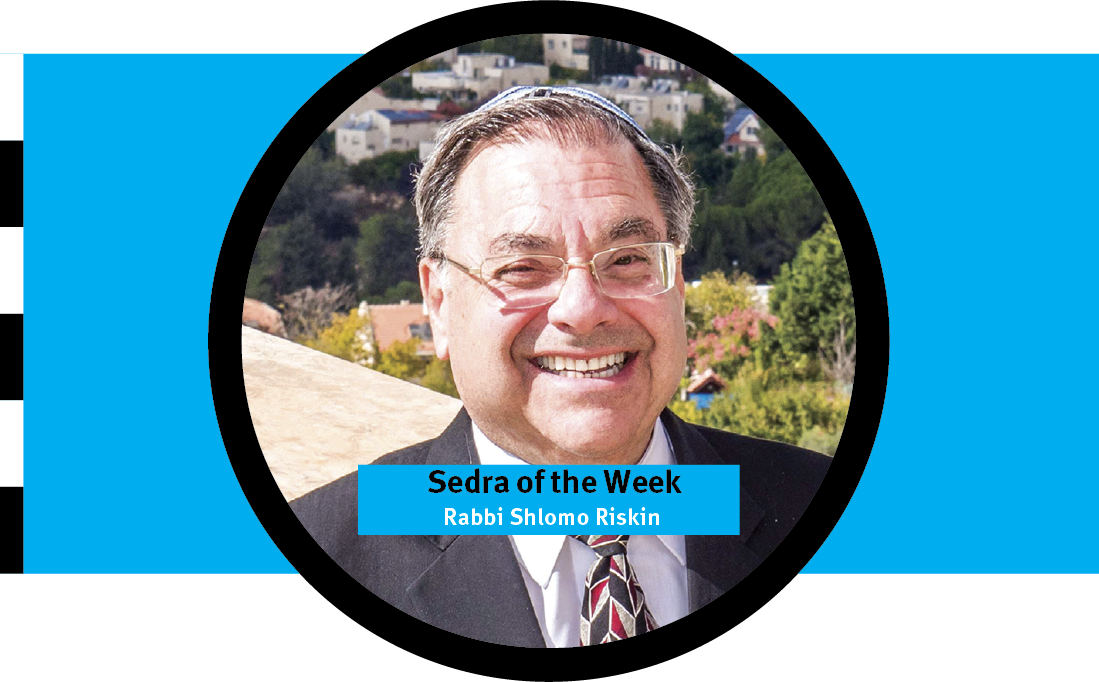Efrat, Israel – “The Lord remembered Sarah as he had promised… Sarah conceived and bore a son…” (Gen. 21:1-2)
Rosh Hashanah always portends new beginnings and fresh opportunities: “This day the world was born,” or at least the world beckons with possibilities of rebirth and renewal.
Hence I would have thought that Rosh Hashanah, the day on which we “enthrone” G_d as Lord of the Universes — and not Shmini Atzeret-Simhat Torah — would be the festival on which we should begin the new Torah reading cycle of the year, the most apt occasion for reopening our Book of Books with “In the beginning G_d created the heavens and the earth.” And to do so would not even be much of a stretch; after all, we are certainly on target, having reached the last chapters of the final Book of Deuteronomy during our regular Shabbat readings at this time of year.
So why have our Talmudic Sages ordained that we read of Isaac’s birth and sacrificial binding on the two days of Rosh Hashanah? However, on second thought, I believe I understand the deep wisdom of our Sages. Yes, Rosh Hashanah is probably the most universally oriented of all of our festivals, and yes, the Jews of Israel have certainly returned to the global family of nation-states after a hiatus of close to 2,000 years, taking center stage on the world arena. Nevertheless, the “world” which initially and most compellingly consumes most of our day-to-day thoughts and activities is the more personal world of our individual families.
And perhaps, on an even deeper level, the building blocks of every national society are the individual families within the country’s borders; the Nation of Israel emerged from the family of Abraham! Moreover, it is the family that is the necessary medium of communicating a specific national narrative from generation to generation. G_d elected Abraham as the first Hebrew because he commanded his own children and his household after him to observe [be responsible for] the path of the Lord, to do acts of compassionate righteousness and moral justice. Indeed, virtually all of our familial feasts and celebrations are dedicated to nurturing and transmitting our national narrative, values and lifestyle to our children and grandchildren.
From this perspective, since the road to new beginnings must be paved by acts of repentance —Rosh Hashanah ushers in our 10 Days of Repentance — we must concentrate our repentance and our resolutions for change upon our sins against family, spouse and children, rather than our sins against G_d. It is easier, and less personally threatening, to objectively assess our personal standing before the Unseen Seer of the Universe than before the parents, spouses and children with whom we have personal dealings every single day.
Permit me three stories:
1. The Talmud (BT Rosh Hashanah 16) provocatively suggests that the various and numerous sounds of the shofar call to repentance are meant to confound Satan. Who is Satan? Another passage of the Talmud (BT Gittin 52) explains: “A certain couple lived in one dwelling together with Satan; every Friday night they would argue with each other. R. Meir entered the household and lived there for three consecutive Friday evenings until he made peace between them.
He heard Satan cry out, ‘Woe unto me; I have been forced out of the house because of R. Meir…’” Satan is family discord.
2. The Talmud further records (BT Brachot 8) the custom of one community that the morning after the wedding night, a friend of the groom would ask him, “Matza or Motzi?” “What kind of wife have you found? Which verse applies to you? Is it ‘one who has found [matza] a wife has found only good’ (Prov. 18:22), or is it ‘I find [motzi] that more bitter than death is the woman’ (Eccl. 7:26).” What kind of question is this? It decries all prohibitions against slander. How dare the friend ask, and the groom answer, concerning the wife he has just married? I would suggest that the friend is asking the groom about the groom, not about his bride. Now that the wedding is over and your life together has just begun, who do you think about first when you arise in the morning? Is it “one who has found [matza] a wife,” your wife whom you are concerned about first, then you have “found only good”; but if it is “I find [motzi],” yourself that you think about first, then your life will be more bitter than death…”
3. When I was a young rabbi in Manhattan with a growing family, I got into a cab. During my conversation with the driver, a foreign immigrant who lived in a “slum” neighborhood, he told me he had been married to the same woman for 35 years, had four professional children and had never been schooled beyond the eighth grade. “To what do you owe your incredible success?” I asked. He explained: “As long as the children lived in the house, all of us had to be around the dinner table at 7 p.m., without radio, television or newspaper. Everyone had to tell the best moment of the day, and the worst moment of the day. That’s how I brought the family together, and was able to give over how important I think education is.”
I burst into tears; that taxi driver who never went past elementary school was much wiser than I …
Shabbat Shalom
Rabbi Shlomo Riskin
Founder & Rosh Yeshiva,
Ohr Torah Stone
Founding Rabbi of Efrat


